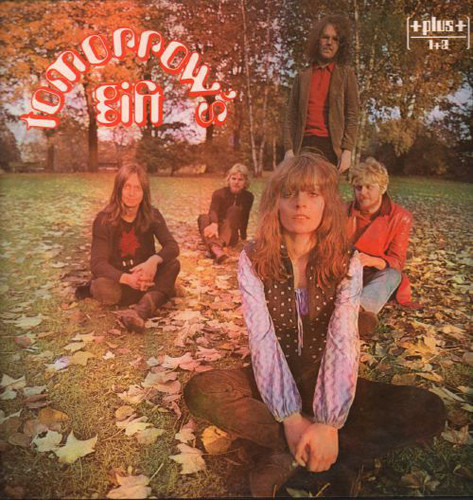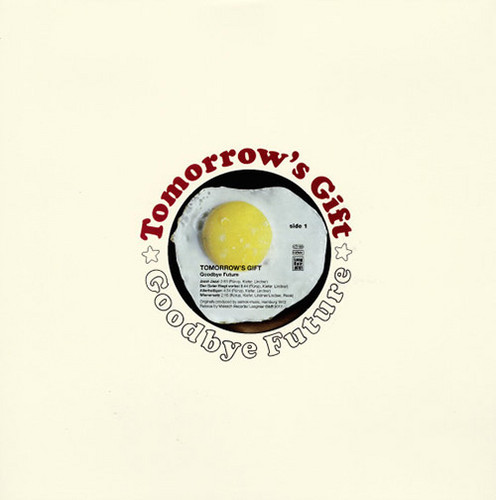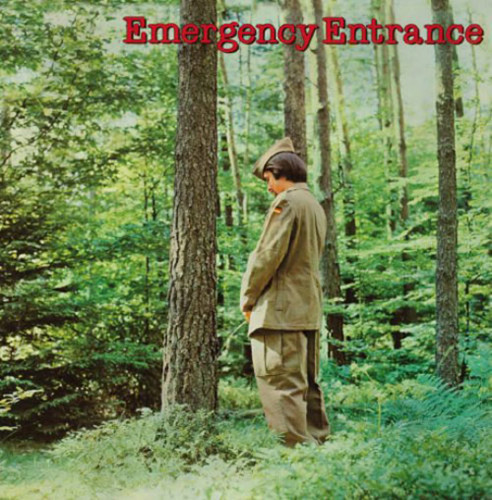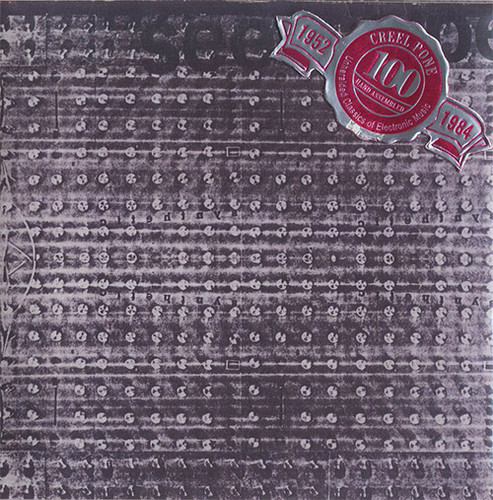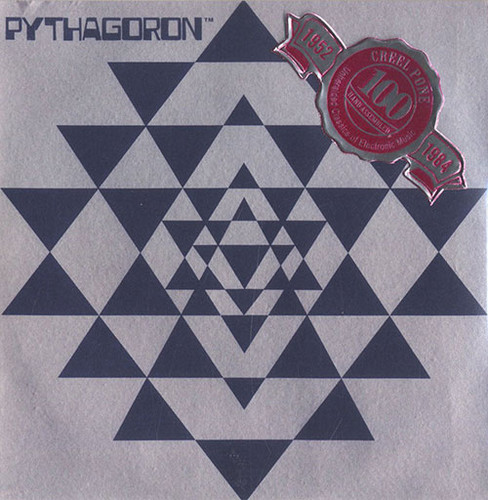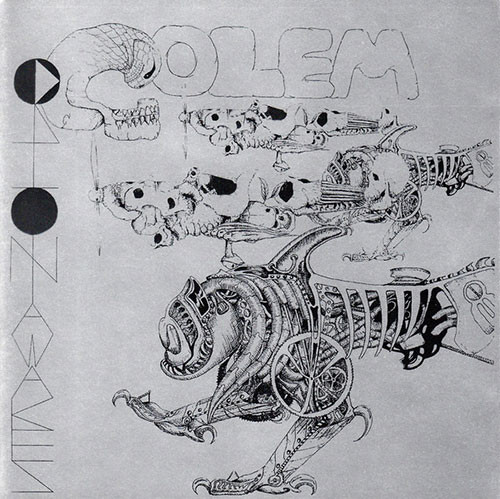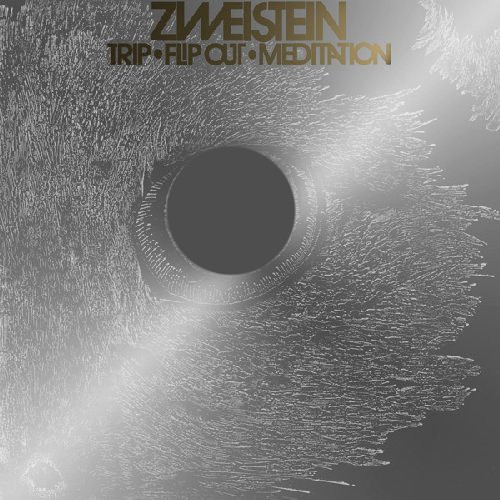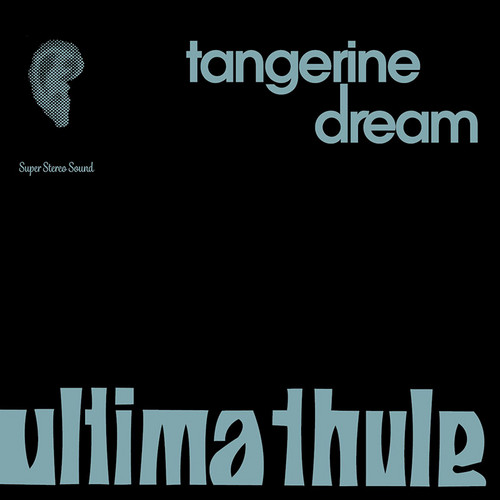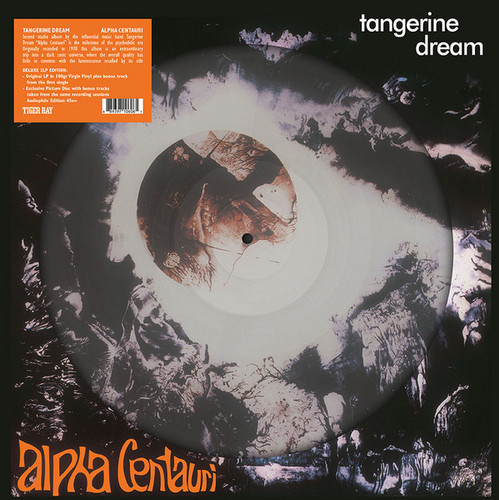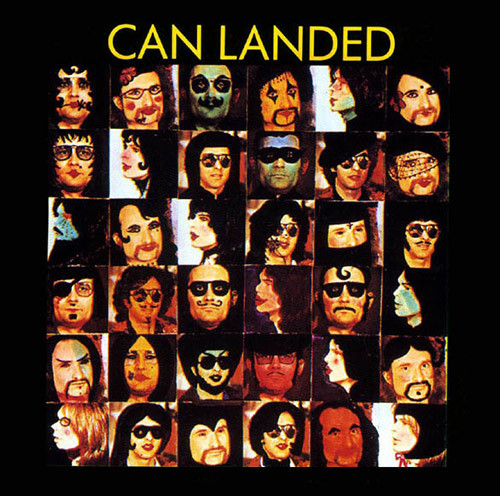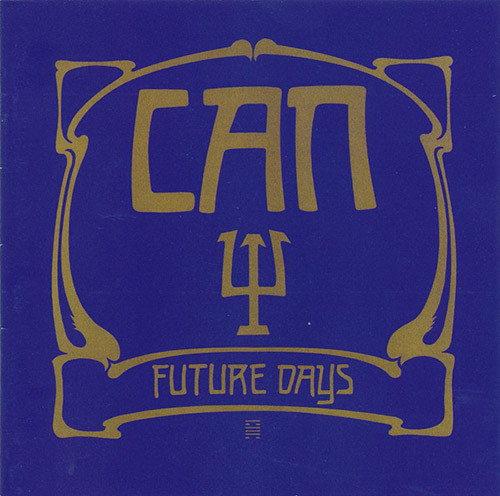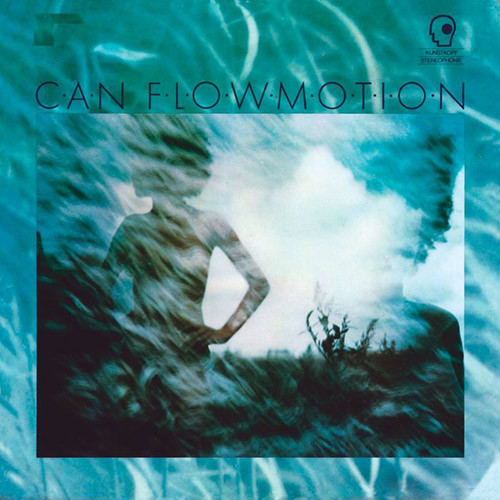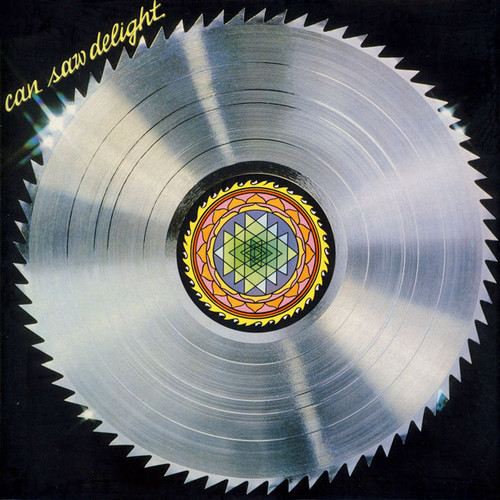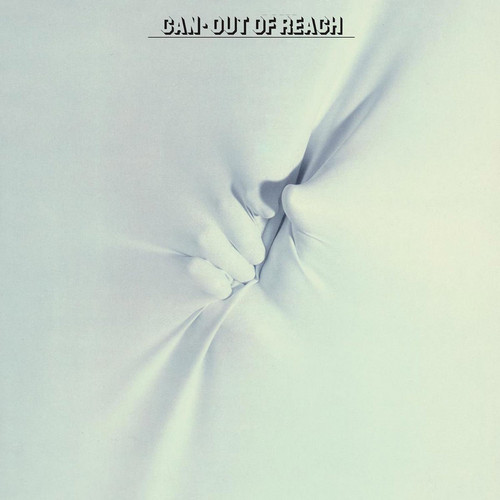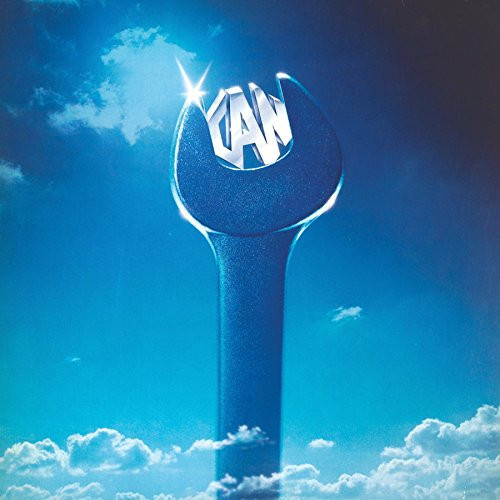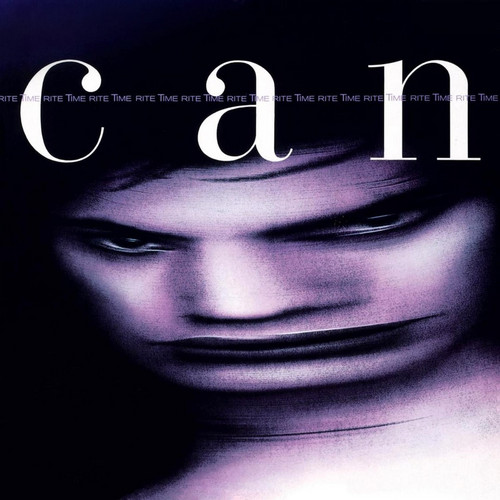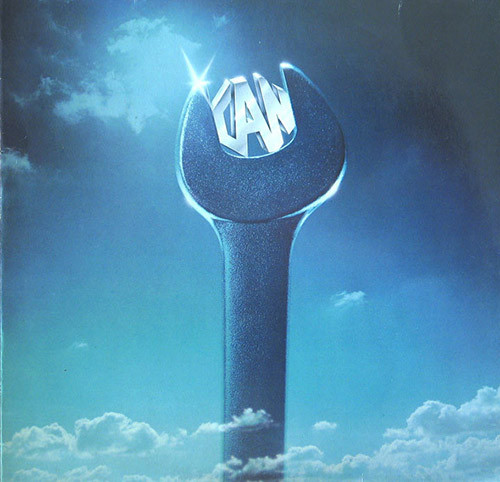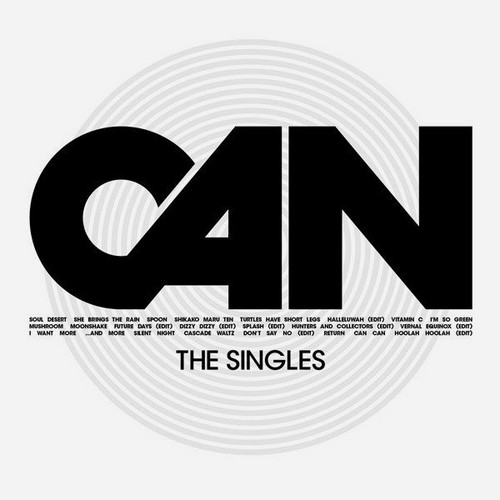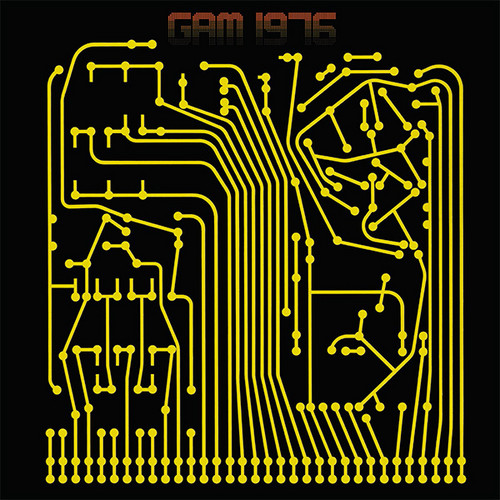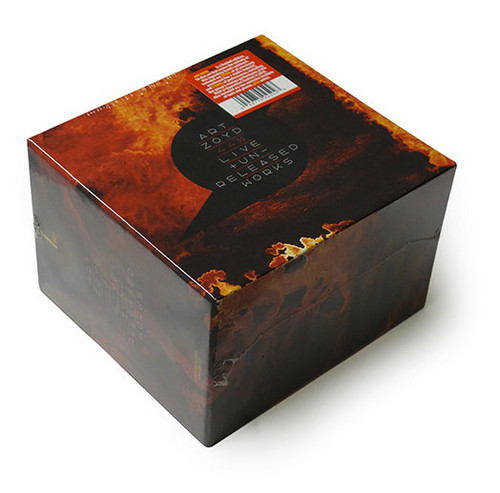Psych /
Tomorrow's Gift
Originally issued in 1970, the first album by German band Tomorrow's Gift is a true Krautrock classic. It contains long, powerful tracks with plenty of guitar, organ, flute and drum solos. And of course there are Ellen Meyer's strong vocals which bring to mind Frumpy's Inga Rumpf, or Janis Joplin. Indeed, Tomorrow's Gift and Frumpy had a lot in common musically, and both are highly appreciated by genre lovers. For this reissue the recordings were newly remastered and you also get a 28-booklet fe…
Goodbye Future
One of those amazing groups from the early 70s German scene – the kind of outfit who were doomed to failure right from the start, but didn't ever let that stop them from making some incredible music! The sounds here came about as a result of the dwindling Tomorrow's Gift lineup woodshedding in a schoolhouse in rural Germany – experimenting freely with all sorts of timings, styles, and instrumental combinations – then refining the whole thing down to their core lineup of keyboards, bass, and drum…
Emergency Entrance
Also for the first time legally reissued is Emergency`s second album from 1972 'Entrance', also on CBS. It has two long tracks (More than ten minutes each) on the b-side and shows the band at it's peak. Perfect musicians play perfect music. Both albums are a must-have! Remastered from mastertape. Both albums are remastered from the mastertapes out of the Sony/CBS archives. The sound is brilliant. Little story included. Limited edition.
Synthetik 1
Here’s inarguably the Holy Grail of the tri-section of the Krautrock / Düsseldorf-school / experimental-electronic crossroads; the sole ”Private Issue” 1973 LP, documenting “Elektronische Musik” as recorded between “1971 bis 1973” by Wolf-J & Eckart Seesselberg. I have long seen this titanic set as so much more than a mere footnote in the “Electronic Psych” canon; if anything, the free-wheeling, free-form live-electronic blasting that ensues pretty much from the onset obliterates the majority of…
Pythagoron Inc.
Reproduction of a rather odd, late 70s upstate New York “Electronic Music for Healing” lineage LP, credited only to the corporation "Pythagoron Inc. 1977;” about whom we know very little - and maybe it’s best it stays that way. Explaining the music enclosed - encased within, really, without resorting to euphemism is rather hard to do here; so I’ll just give you a rundown of what I hear:The A-side starts out with a surge of White Noise, then suddenly out of nowhere an out of time Echoplexed Dru…
Orion Awakes
Mental Experience present a reissue of Golem’s Orion Awakes. Orion Awakes was recorded and produced circa 1976 by Toby Robinson, aka Genius P. Orridge, while he worked as second engineer at the famous Dierks Studio in Cologne. Memories from those hazy times are sketchy, but all evidence leads you to believe that the musicians featured here were well-known names from the kraut scene working under pseudonyms, recording 100% underground, non-commercial music under Toby’s guidance, just for fun. App…
Trip Flip Out Meditation
Zweistein's trippy Kraut psych experimental masterpiece from Philips Records 1970, arguably one of the most sought after Kraut titles, period! Remastered from the original tapes, absolutely essential! With roughly a half century between us, the revolutionary spirit of the 1960’s is easily lost - watered downed, its energy and truths rubbed clean by the ubiquity of the pop machine. Our contemporary vision of the past rarely resemblances the true zeitgeist of the day. The 1960’s was an era defined…
Ultima Thule
**Special limited edition with screen-printed clear jacket, insert and clear vinyl** A superb collection of rare early tracks from electronic pioneers Tangerine Dream! Features 2 tracks from the ’60s psych-rock band that preceded Tangerine Dream, The Ones, plus rare tracks from the early ’70s era of the band when they were at their most adventurous, composing epic pieces that clocked in at over 10 minutes each such as “”Asteroid Agenda”" and “”Overture. Amazing floating space cosmic psychedelia
Alpha Centauri
180g vinyl + picture disc. Second studio album by the infuential music band Tangerine Dream, Alpha Centauri' is the milestone of the psychedelic era. Originally recorded in 1970 at Stommeln's sound-lab Studio Dierks and released via the Ralf-Ulrich Kaiser's Ohr imprint, this album is an extraordinary trip into a dark sonic universe, where the overall quality has little in common with the luminescence recalled by its title. Organ acoustics and fute lean on mesmerising textures, created by e…
Landed
If you got a quid for each time Can were referenced as influencing a given band or artist, we'd have taken the Bank Of England down years ago. Remastered to a clarity that will come as a shock to those who've been suffering the original cd releases, 1975's 'Landed' is notable for marking the return to Can's debut line-up (barring Malcolm Mooney of course), following the love-sick Damo Suzuki's departure. Their 7th full-length release, 'Landed' also saw the band getting their mitts on a 16 track …
Future Days
** 2025 repress. Comes in embossed sleeve with printed inner sleeve, pressed on heavyweight vinyl. Includes code for free mp3 download of this album** An uneasy truce had been thrashed out by the warring factions of Can by the time they came to record 'Future Days' in 1972, yet it is the underlying musical tension that makes this album such a thrilling part of their cannon... With Damo Suzuki's ethereal vocals continuously juxtaposed by Michael Karoli's fraught guitars and Holger Czulkay's invas…
Flow Motion
The second of Can's three Virgin albums, 1976's Flow Motion, is a divisive record in the group's canon. It was their most commercially successful album (the opening track, "I Want More," was released as a single in the U.K. and actually charted, thanks to its smoothly percolating near-disco groove, which makes it resemble a late-period Roxy Music hit), but many fans dismiss it as the group's feint toward commercial success. That fluke hit aside, the charge doesn't really hold water. There's a ne…
Saw Delight
1977's Saw Delight is the German progressive group's farewell. Percussionist Reebop Kwaku Baah and bassist Rosko Gee from a late-era lineup of Traffic to add a sort of Afro-Cuban jazz feel to their sound. Similarly, Rosko Gee's handling of the bass duties (which he performs superbly throughout, adding an almost Mingus-like rhythmic intensity to even the loosest songs) frees Holger Czukay to add electronics and sound effects to the proceedings. The opening "Don't Say No" recalls the controlled fu…
Out Of Reach
All but unknown to most but the most hardcore Can fanatics, 1978's Out of Reach is one of the group's rarest albums. This is due in large part to the fact that bassist Holger Czukay left the band before the recording sessions, and drummer Jaki Liebezeit has a greatly reduced role, leaving most of the rhythm duties to percussionist-come-lately Reebop Kwaku Baah. As on the group's proper swan song, 1977's Saw Delight, new bassist Rosko Gee largely leads the group, and his jazz-inflected playing is…
Can 1978
Mute brought back more Can than any krautrock fan could possibly handle with the 'Can Vinyl Box', which featured seventeen Can records reissued in one bundle; now each record is stepping out on its own. The self-titled 'Can' is the band's eleventh record, released in 1978 and unfamiliar to most. Like 'Out of Reach', little of the music, if any at all, is attributed to the band's founding member Holger Czukay, who stepped back in the writing and composing department. It would be Can’s last album …
Rite Time
'Rite Time’ was originally released in 1986 and has been evaluated as one of the classic Can albums. "An unexpected reunion from Can (made even more unexpected by the presence of original singer Malcolm Mooney, who left the band in 1969), 1989's Rite Time is in large part a return to form for the group, especially when one considers how weak Can's last few '70s albums were. Wisely, the quintet doesn't try to replicate the sound they created over two decades before on albums like Monster Movie. I…
Can
Mute brought back more Can than any krautrock fan could possibly handle with the 'Can Vinyl Box', which featured seventeen Can records reissued in one bundle; now each record is stepping out on its own. The self-titled 'Can' is the band's eleventh record, released in 1978 and unfamiliar to most. Like 'Out of Reach', little of the music, if any at all, is attributed to the band's founding member Holger Czukay, who stepped back in the writing and composing department.
The Singles
This unique document is the first time Can's singles have been presented together and shows the breadth of their influential career, from well loved tracks like Halleluwah, Vitamin C and I Want More to more obscure singles such as Silent Night and Turtles Have Short Legs. "Turtles Have Short Legs," was the band's third single released in 1971 and never appeared on a studio album. This was recorded around the time of the Tago Mago sessions with the line up of Holger Czukay, Michael Karoli, J…
1976
After the big success of our reissue of Günter Schickert’s amazing Samtvogel LP we present another of his projects, GAM - on which he joined Axel Struck and Michael Leske. A powerful trio of mindexpanding krautrock sounds formed in 1973, they recorded their first sessions in 1976, improvising directly to tape in Schickert’s basement - but these weren’t released until 1986, originally in cassette format - reissued some years later on CD. The sound of GAM 1976 differs a bit to that of Samtvogel. O…
44½ : Live + Unreleased Works
Art Zoyd - 44 1/2 : Live and Unreleased Works 12 x CDs + 2 x DVDs box set with book. 'Art Zoyd is a quartet, but their instrumental arsenal produces the sound of a mighty orchestra.' – The New York Times Originally founded as a psychedelic / progressive rock band in France in 1969, with the arrival of soon-to-be co-leaders Gerard Hourbette and Thierry Zaboitzeff in 1971 and then with the departure of the band's founder, the group radically changed direction. By 1975 they were no longer a ‘rock'…
